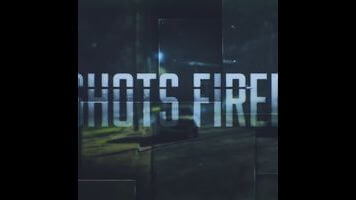If that sounds like a lot to cram into a limited series, it’s because it is, but the Bythewoods have always had lofty ambitions in their storytelling—they previously tackled fame and fortune in Beyond The Lights and before that, Love & Basketball. The scope of this project proved too expansive for its original film premise: There were too many systemic racism dots to connect in the judicial system, too much intrigue to uncover, and too many threads to unspool. They’re not quite out of their depth with Shots Fired, which is their most politically charged offering to date and certainly deserving of the “event television” moniker that’s enjoying its own revival. But as the first half of the 10-part series unfolds, it’s hard to see it wrapping up in a truly satisfying way.
That’s not a knock against the show’s quality, because Shots Fired has a compelling story to tell and the chops to do it justice. The Bythewoods have assembled a great cast that includes Sanaa Lathan and Stephan James as Ashe Akino and Preston Terry, respectively, the series and investigative leads. They’re a pair of mismatched ringers sent to uncover the truth in Gate Station, North Carolina: She’s a street-smart investigator, and he’s a polished litigator. They share goals, if not methods, and they’re both conflicted by the assignment, which, despite what their boss says, might not be able to be contained to just this particular police officer, this particular shooting, and this particular Southern town. The state of North Carolina might end up making an example of Officer Joshua Beck (Tristan Wilds), but is he really deserving of its fury or representative of the bigger problem?
Those aren’t merely philosophical or sociological questions that Shots Fired is posing; it often goes into procedural mode to examine the exact nature of these possible crimes. The transitions from crime drama to Dick Wolf territory aren’t always seamless and sometimes even threaten to derail the show, which builds a full head of steam off its themes. The decision to make the victim of the police shooting a white man doesn’t diminish Shots Fired’s relevance, nor does it absolve those in power. It acts as misdirection for both the characters and audience; in the story, it allows some people to see justice has been served. But from the viewers’ perspective, all that’s visible are the strings attached.
Shots Fired takes those strings or strands and weaves a wide and intricate web, one that connects captains of industry—who benefit directly from racial inequity in the criminal justice system—to the politicians who play on fears of “bad neighborhoods” to secure their positions. This show isn’t afraid to go there, or really anywhere, in its examination of the many factors that lead to these senseless killings or the redlining that creates these “rough parts of town.” But while it builds its case, Shots Fired abstains from playing judge and jury. It’s entertainment, after all, and not just a condemnation of institutional racism, though there’s no denying that pot shots are taken.
The Bythewoods have previously stated that, at first glance, the series’ subject matter might not be for everyone, though it is intended for everyone (under the parental guidance admonitions, of course). But cutting such a wide swath does end up costing Shots Fired some of its momentum as it heads to its midpoint. The story struggles to balance its mystery and drama elements, and the same time constraints that give it a sense of urgency necessitate a certain efficiency that’s sometimes lacking. And the focus just widens as the story goes on, which works in the short term because it gives us more of intriguing characters like Aisha Hinds’ Pastor Janae—but it also has the potential to end up with too many disparate storylines or just a tangled mess. Still, it’ll be worth sticking it out, because when it does manage to stay on course, Shots Fired is a pertinent and riveting drama.

 Keep scrolling for more great stories.
Keep scrolling for more great stories.
